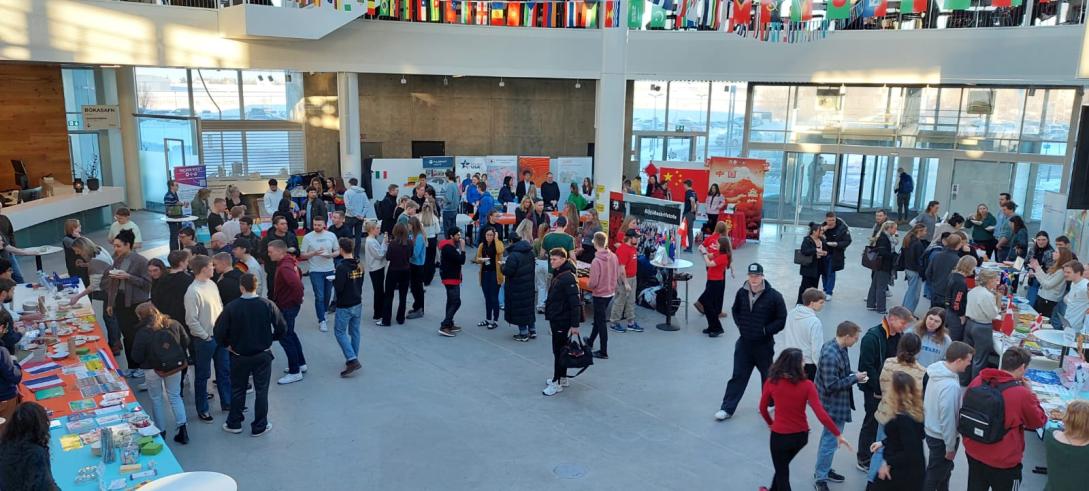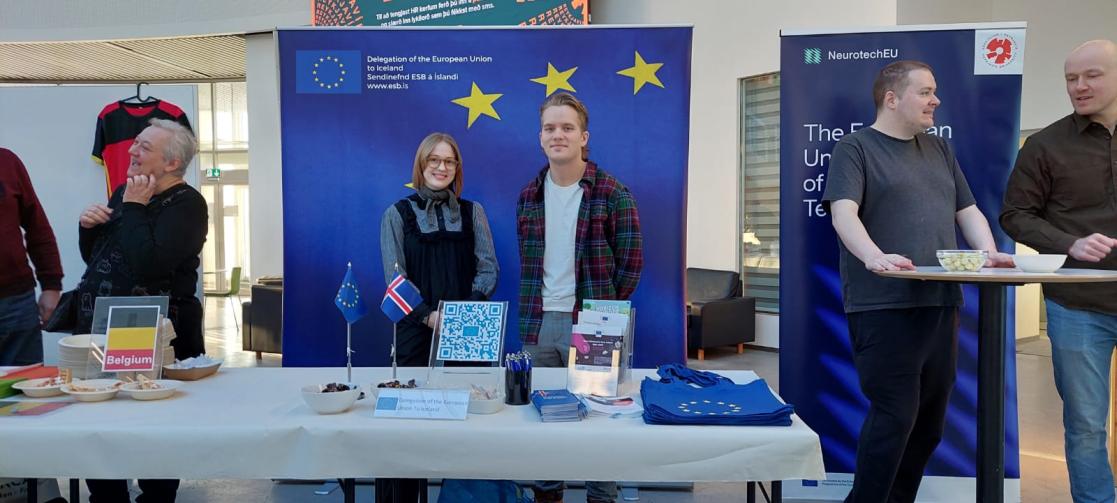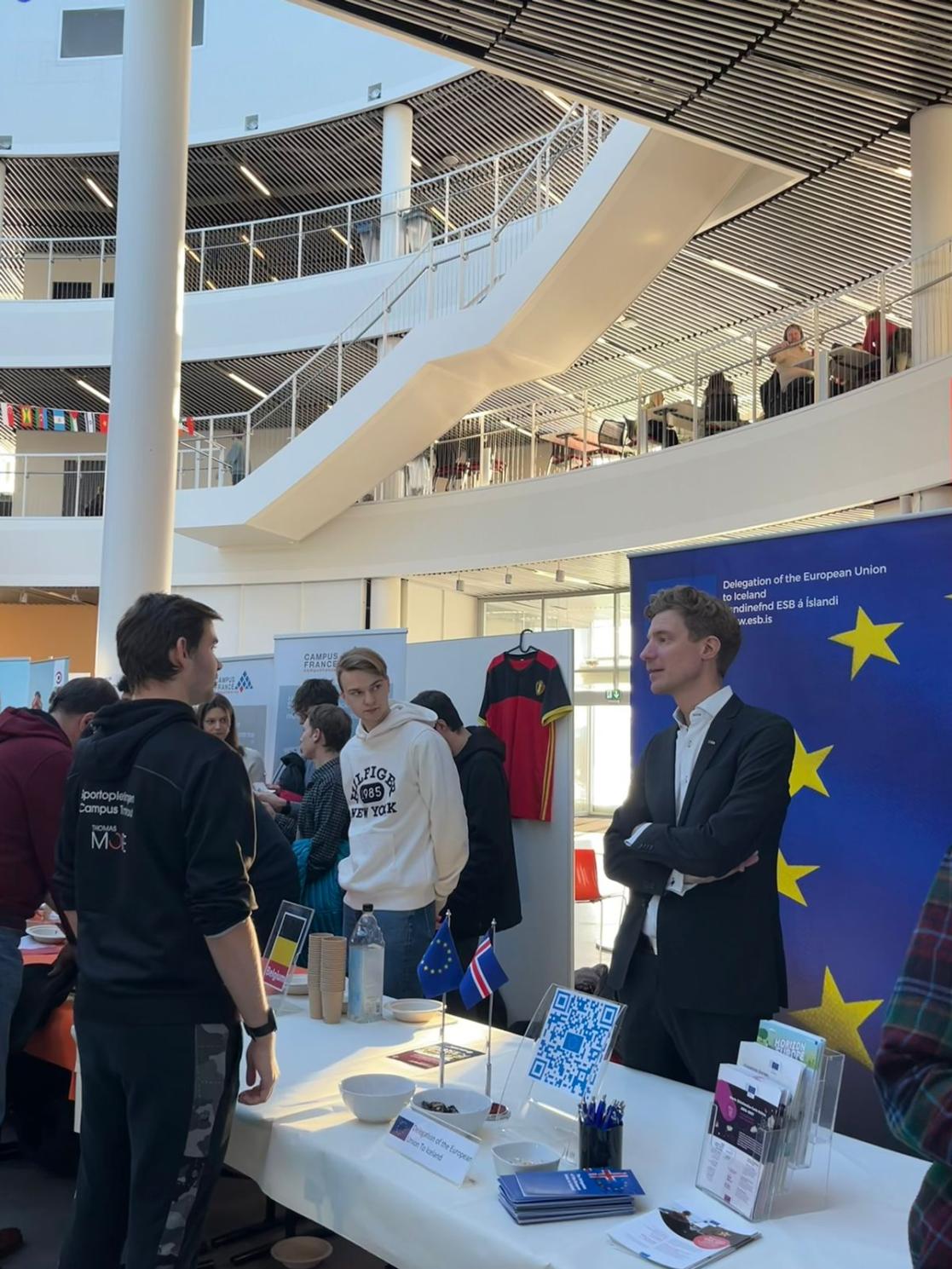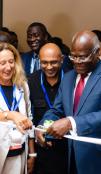EU Delegation Participated in Reykjavik University's International Day

Reykjavík University held its annual International Day in their main University building on 8 February 2024. The International Day is an event where students can learn more about international opportunities such as student exchange programmes, research opportunities, study and research grants, and traineeships.
The Deputy Head of the EU Delegation, Mr Samuel Ulfgard, represented the Delegation at the event alongside two trainees. The team shared with curious students information about EU programmes such as ERASMUS+, traineeship opportunities at the EU, as well as discussed the role and responsibilities of the EU Delegation in strengthening EU-Iceland relations.
Reykjavík University participates in the EU programme European Universitites Initiative and is a member of the NeurotechEU alliance of eight European universities: Radboud University, Universidad Miguel Hernández de Elche, Karolinska Institutet, Rheinische Friedrich-Wilhelms-Universität Bonn, Boğaziçi Üniversitesi, Universitatea de Medicină și Farmacie din Cluj-Napoca, and Université de Lille.
European Universities Initiative
In 2017, European Union leaders outlined a vision for education and culture. In late 2017, the European Council called on EU Member States, the Council, and the Commission to take forward a number of initiatives, including ‘European Universities’.
The European Universities Initiative facilitates the exchange of education, research, and employment. This means that students can take lessons at all the institutions involved, not constrained by institutional capabilities and borders. They can thus gain international experience and benefit from the specific expertise of the various universities. For scientists, it will lead to the improvement of the education they provide and to smoother cooperation in research.
In this way, the initiative trains new researchers and engineers at the highest possible level, with a background and network in several institutes. This improves Europe’s position in brain research and engineering and provides well-educated people to tackle future societal problems.

European Union, 2024

European Union, 2024





